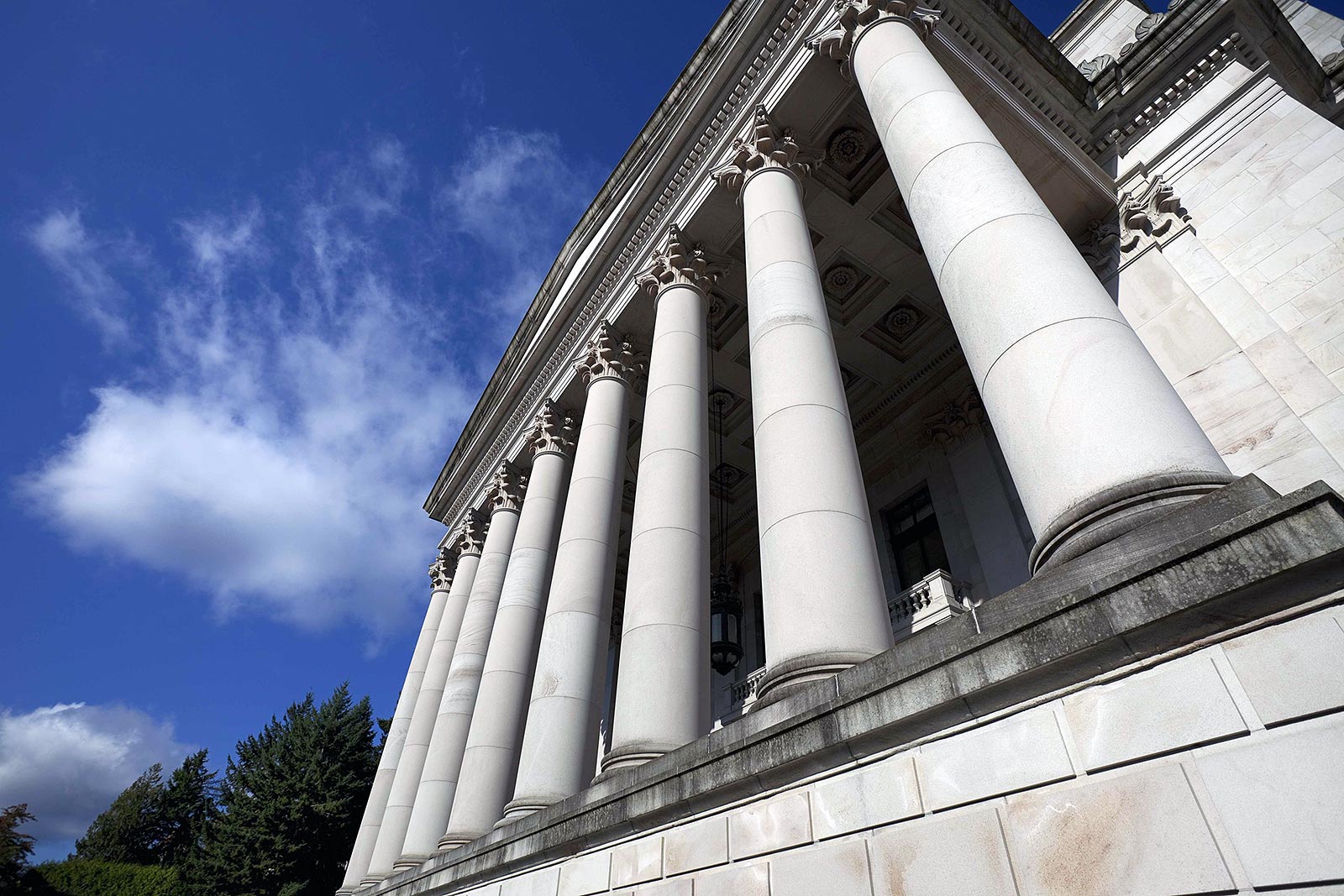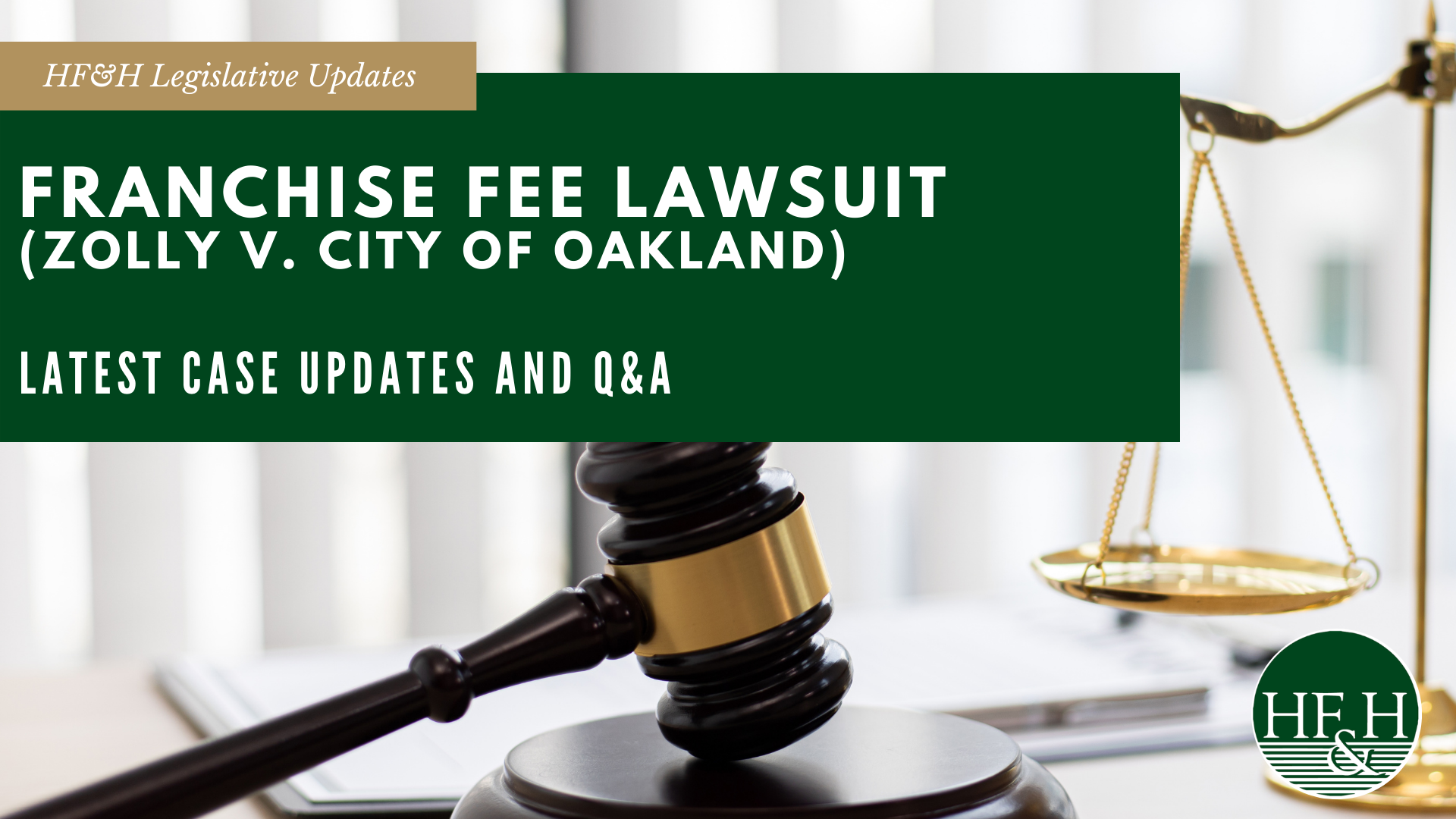
Franchise Fee Lawsuit (Zolly v. City of Oakland) Argued in CA Supreme Court
An important case regarding solid waste franchise fees, Zolly v. the City of Oakland, was argued in the California Supreme Court on Tuesday May 24, 2022. We sat down with Rob Hilton, HF&H President, to learn more about the case and how it may impact local jurisdictions.
What is the “Zolly v. City of Oakland” case and why should we be paying attention to the ruling?
Rob Hilton: Zolly v. City of Oakland [“Zolly”] presents a challenge to the City’s ability to collect franchise fees from its franchised solid waste collection services provider(s). Oakland prevailed in the superior court, but lost on appeal, largely based on the ruling of the California Supreme Court [“Court”] in Jacks v. City of Santa Barbara. The Zolly case was taken up by the California Supreme Court given the potential for broad precedent and potential conflict with an appellate decision in the Bay Area Toll Authority case. The outcome of this case should provide local governments throughout the state with guidance on whether their solid waste franchise fees are taxes and how to assess the value of franchise fees.
What were the takeaways from the May 24 hearing? Did it give us any indication of what is coming next?
Rob Hilton: The California Supreme Court heard oral arguments and had an exchange with the litigants on May 24, but their decision could take up to 90 days. The Court is notoriously hard to read, and justices even have a practice of asking contrary questions to their own opinions to challenge the litigants. That said, it seems that both litigants and the Court believe that franchise fees are subject to exemption 4 under Proposition 26 [Cal. Const. XIIIC §1(e)(4)] related to the sale or rental of governmental assets. The franchise itself is an asset of the local government, which has value and can be conveyed. The parties seem to differ on whether there is any limitation on that value or any obligation of the local government to determine the value of the franchise prior to establishing the amount of any such fee. In addition, Zolly’s attorney claims that the amount of the fee in Oakland’s particular case may not have been established in a bona fide, competitive, market-based process because of alleged political influence.
How will this decision impact local jurisdictions?
Rob Hilton: It is possible that the decision of the Court may be relatively narrowly applied to the unique facts of Oakland’s situation or may have much broader implications for all local governments related to Proposition 26. The fact that the Court took up the case, in part, to deal with appellate court differences on Zolly and Bay Area Toll Authority, indicates that they may rule more broadly. We hope that the Court will rule with Oakland and categorically defend the rights of local governments to establish franchise fees consistent with exemption 4 in Proposition 26. If so, most local governments can rest assured that their franchise fee revenues are safe. Alternatively, the Court may rule with Zolly and find that any amount of a franchise fee that exceeds the value of the franchise represents a tax subject to a public vote. If that is the case, we hope that the Court will provide guidance on how to establish value.
Is there anything jurisdictions should be thinking about or preparing for?
Rob Hilton: At this time, it is best to await the decision from the Court before making any changes to franchise agreements or fees. Once the opinion is rendered, local governments with solid waste franchise fees should consult with legal counsel about the particulars of their situation to determine how best to proceed with modifications to their franchise fees. HF&H has followed this developing case closely and will be prepared to support local governments in calculating and negotiating the changes required.
What are the next steps in the case and when should we be expecting a decision?
Rob Hilton: The California Supreme Court has 90 days from the date of the oral arguments to render a decision. So, by August 22, 2022 we should have a published decision.
Note: HF&H updates are for informational purposes only, and are not intended as legal advice. Seek legal counsel for further information.
HF&H is here to help!
For more than three decades, HF&H has helped hundreds of local agencies navigate solid waste legislation, rate setting, and franchise negotiations. We help our clients stay ahead of the planning curve by tracking solid waste legislation and providing policy insights based on experience and relationships.
Please do not hesitate to contact our Northern California office at (925) 977-6950, or Southern California office at (949) 251-8628 to find out how we can help your jurisdiction.
To subscribe to our Legislative Updates, send an email to Kim Erwin at kerwin@hfh-consultants.com with the subject “Subscribe”.
Follow HF&H on LinkedIn
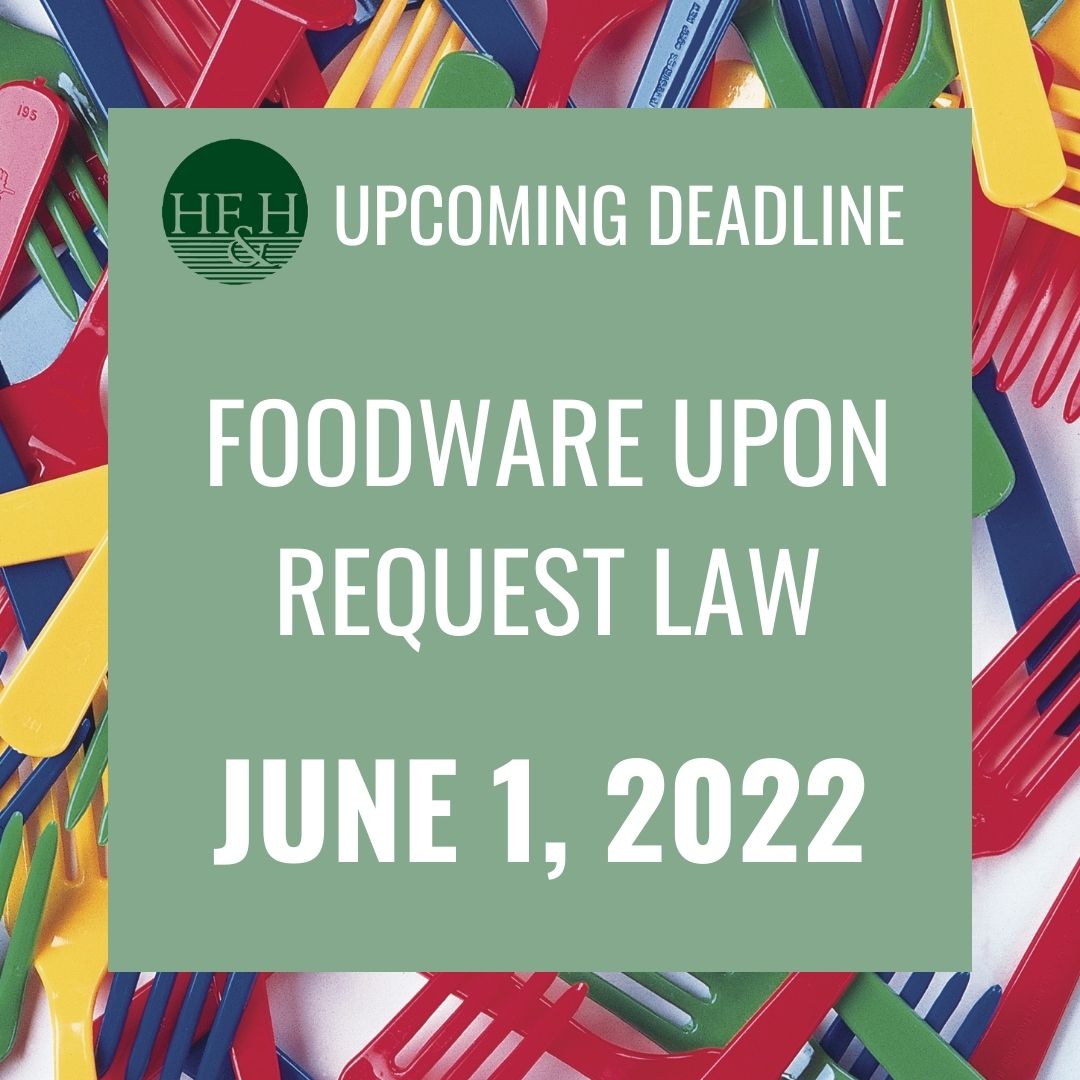
HF&H Answers AB 1276 Frequently-Asked Questions
What is AB 1276?
Passed in the 2021 legislative session, AB 1276 (Carrillo, 2021) prohibits food facilities and third-party food delivery platforms from providing any single-use foodware accessory or standard condiment to a customer unless requested, among other requirements. This expands on current state law regarding straws (AB 1884), and follows in the footsteps of local movements for “skip the stuff” ordinances.
What counts as a single-use foodware accessory or standard condiment?
A “single-use foodware accessory” includes single-use items such as: forks, knives, spoons, sporks, chopsticks, condiment cups and packets, straws, stirrers, splash sticks, and cocktail sticks (PRC §42270(e)). A “standard condiment” includes items such as: ketchup, mustard, mayonnaise, soy sauce, hot sauce, salsa, salt, pepper, sugar, and sugar substitutes (PRC §42270(f)).
The law prohibits those items from being bundled or packaged in a way that prohibits the consumer from taking only the item desired and encourages use of bulk and refillable dispensers (PRC §42271(b)).
What is required for local jurisdictions?
The bill requires jurisdictions to authorize an enforcement agency to enforce the bill on or before June 1, 2022 (PRC §42272(a)).
What if my jurisdiction already has, or is interested in adopting, a single-use foodware ordinance that is more restrictive than AB 1276?
Nothing in AB 1276 prevents a jurisdiction or other local public agency from adopting an ordinance that is more restrictive than AB 1276 (PRC §42271(h)). Jurisdictions with more restrictive single-use foodware accessory ordinances in place are encouraged to evaluate the requirements of their local ordinance as compared to the requirements of AB 1276, to ensure minimum AB 1276 requirements are met. Please consult the jurisdiction’s legal counsel regarding policy updates that may be necessary.
How should my jurisdiction designate an enforcement agency? Is an ordinance required?
The bill does not prescribe how a jurisdiction should designate an enforcement agency. Therefore, this decision is dependent on jurisdiction-specific procedures for authorization, and is subject to legal counsel interpretation. Examples of potential options to be considered include, but are not limited to: an ordinance or municipal code update, City Council or Board of Supervisors resolution, or, if permitted, an administrative policy. An enforcement agency must be designated by June 1, 2022. Jurisdictions should be aware of this deadline when planning upcoming City Council and Board of Supervisor agendas. Please consult your legal counsel regarding recommended actions.
Who should my jurisdiction designate as the enforcement agency?
The bill does not specify what entity(ies) should be designated as the enforcement agency. This decision is dependent on jurisdiction-specific procedures and is subject to legal counsel interpretation. Examples of potential options include: the jurisdiction’s code enforcement officials, public works department, environmental health department, or other party given authorization to enforce Public Resource Code requirements. Please consult your legal counsel regarding recommended options.
Are there specific penalties for the enforcement process?
The bill states that the first and second violations of the bill result in a notice of violation, and any subsequent violations result in a fine of twenty-five dollars ($25) for each day in violation, but not to exceed three hundred dollars ($300) annually (PRC §42272(b)).
How does the State plan to monitor and enforce AB 1276 requirements upon jurisdictions?
The bill does not assign a specific state agency to verify that jurisdictions are enforcing the law. Advocacy groups have submitted a request for clarification to the State Office of Legislative Counsel on this issue, among others.
Disclaimer
This information is based on HF&H’s current understanding and interpretation of AB 1276 and should not be considered legal advice. Jurisdictions should consult their legal counsel before making decisions regarding the implementation and enforcement of AB 1276.
HF&H is here to help!
Need further guidance on local ordinances or state legislation? For more than three decades, HF&H has helped hundreds of local agencies navigate the myriad of solid waste diversion and water/wastewater legislation and regulations at the state and local levels. We help our clients stay ahead of the planning curve by providing policy insights based on experience and relationships.
To subscribe to our Legislative Updates, send an email to Kim Erwin at kerwin@hfh-consultants.com with the subject “Subscribe”.
Please do not hesitate to contact our Northern California office at (925) 977-6950, or Southern California office at (949) 251-8628 to find out how we can help your jurisdiction achieve compliance with current and upcoming State regulations.
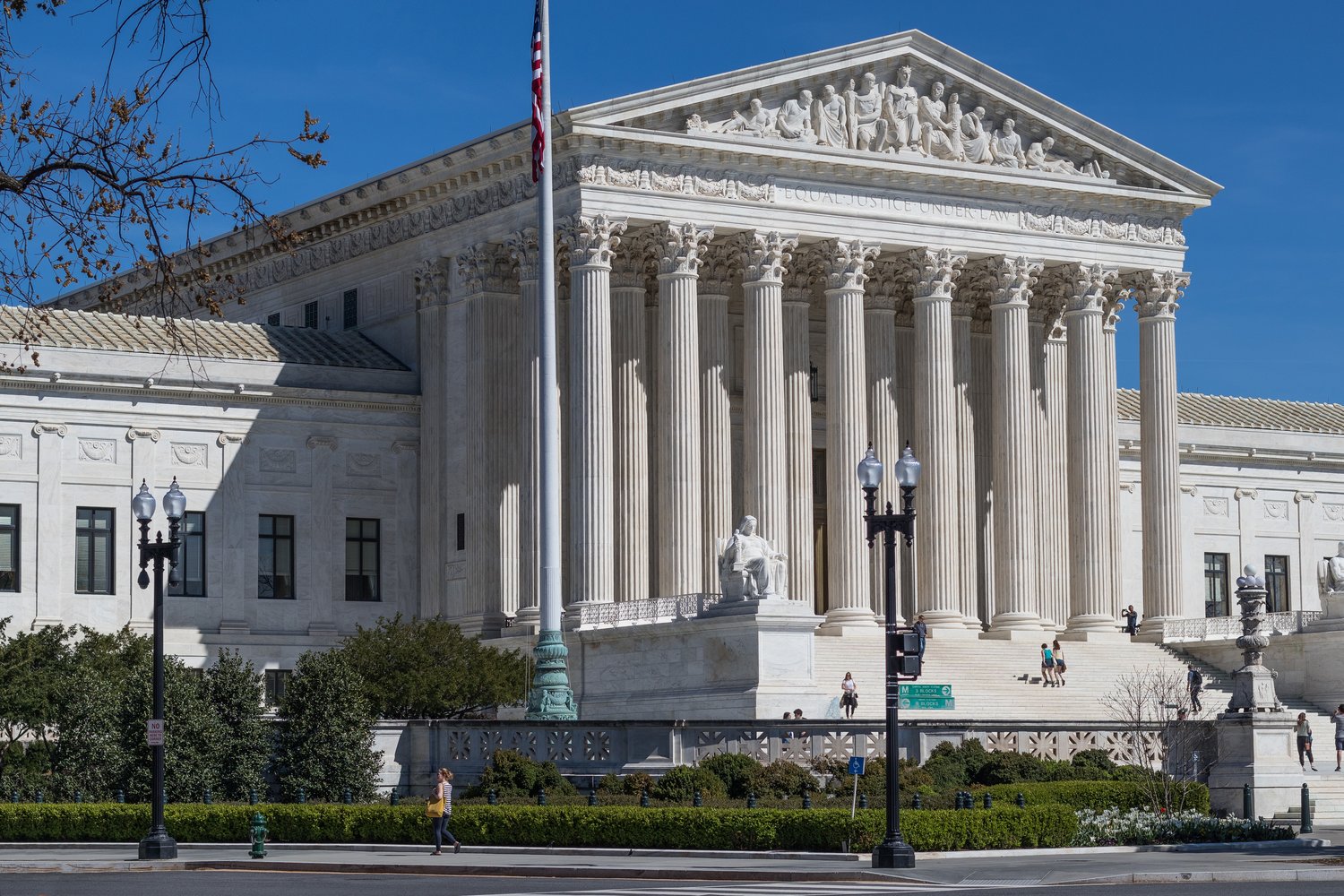

Summary
HF&H is compiling a Statewide database of information regarding implementation with Senate Bill (SB) 1383 and we need your agency’s input. Respondents will receive survey result updates.
Share Your Experience and Gain Insight
Many agencies are still evaluating options for SB 1383 compliance. To best support your agency, we are creating a database detailing the programs related to SB 1383 that are being implemented across the state.
We are looking to gather information on the following:
- Status of implementation with items (e.g., Ordinance, submittal of a Notice of Intent to Comply);
- Plans to cover the cost range of various programs;
- Staffing resource plans for program implementation and oversight;
- Current or planned compliance programs including infrastructure or technology;
- Food recovery efforts and programs;
- Organic waste procurement target programs;
- Waiver protocol best practices; and,
- Any other unique programs or solutions to meet the SB 1383 requirements.
By completing the survey, your agency will receive email updates as data is received. The updates will spotlight unique or innovative programs that could be models for other agencies.
All agency-specific information will remain confidential/anonymous unless we reach out to your agency directly and receive your permission to use your programs as an example.
Click here to complete the SB 1383 Survey.
The survey will take approximately 5-10 minutes. Please feel free to forward this link to other jurisdictions that you think may be interested in participating.
Feel free to call Haley Kunert at (949) 251-0930 or email hkunert@hfh-consultants.com if you have any questions.
Thank you for your assistance and we hope to see your agency’s programs reported on the survey!

Initial Jurisdiction Compliance Report
Pursuant to 14 CCR Section 18994.1: Each jurisdiction shall report to the Department (CalRecycle) on its implementation and compliance with the requirements of this chapter. Each jurisdiction shall report to the Department by April 1, 2022 the following information:
(1) A copy of ordinances or other enforceable mechanisms adopted pursuant to this chapter.
(2) The reporting items identified in Section 18994.2(b), which include the following relative to the jurisdiction’s implementation of SB 1383 organic waste collection requirements:
- The type of organic waste collection service(s) provided by the jurisdiction to its generators.
- The total number of generators that receive each type of organic waste collection service provided by the jurisdiction.
- If the jurisdiction is implementing an organic waste collection service that requires transport of the contents of containers to a high diversion organic waste processing facility, the jurisdiction shall identify the Recycling and Disposal Reporting System number of each facility that receives organic waste from the jurisdiction.
- If the jurisdiction allows placement of compostable plastics in containers pursuant to Section 18984.1 or 18984.2, the jurisdiction shall identify each facility that has notified the jurisdiction that it accepts and recovers that material.
- If the jurisdiction allows organic waste to be collected in plastic bags and placed in containers pursuant to Section 18984.1 or 18984.2 the jurisdiction shall identify each facility that has notified the jurisdiction that it can accept and remove plastic bags when it recovers source separated organic waste.
(3) The following contact information:
- The name, mailing address, phone number, and email address of the employee of the jurisdiction that the jurisdiction has designated as the primary contact person for the purposes of receiving communications regarding compliance with this chapter.
- The name and address of the agent designated by the jurisdiction for the receipt of service of process from the Department for the purposes of enforcement of this chapter if different from (A) above.
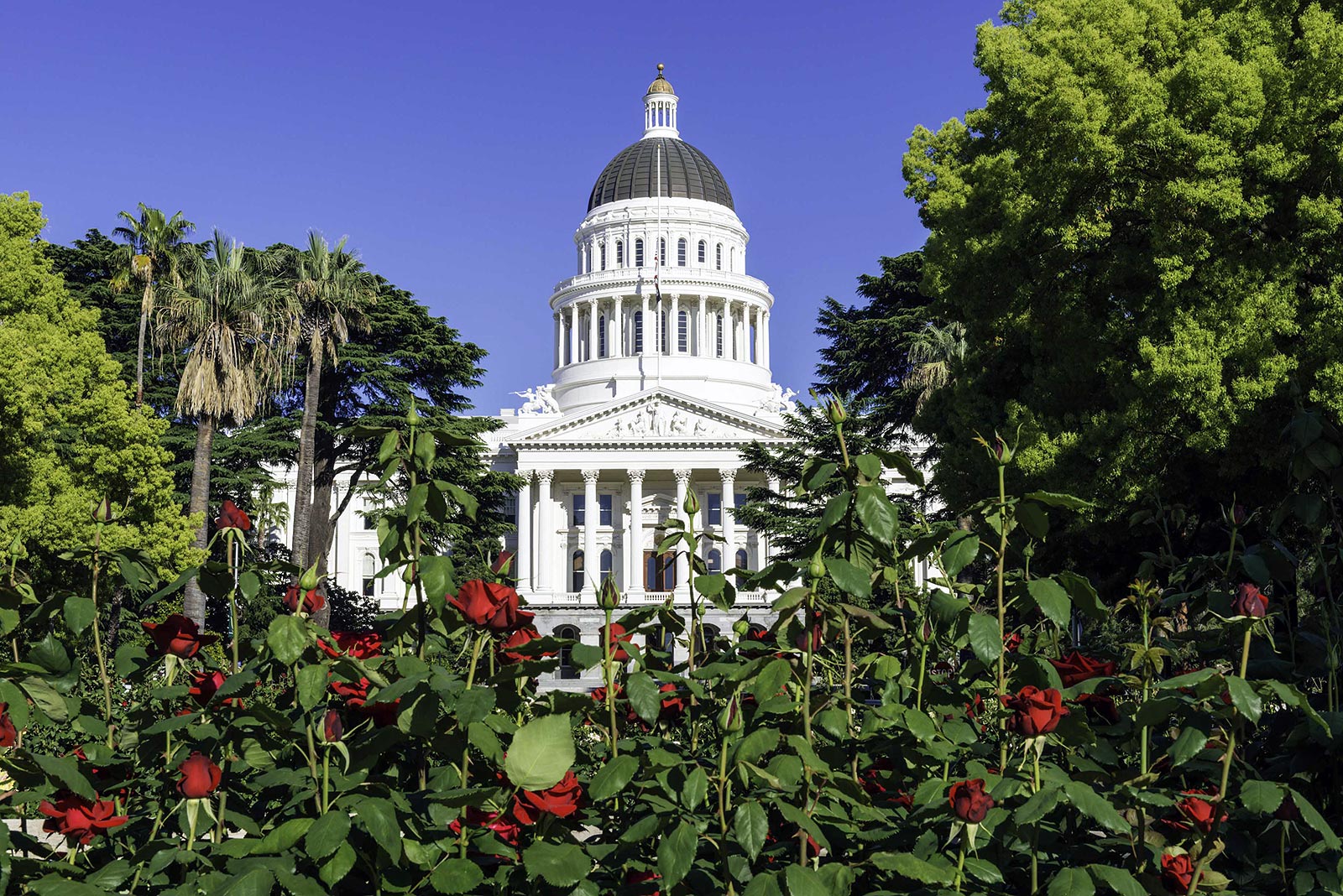
HF&H has prepared an infographic to help clients understand the SB 619 Notification of Intent to Comply (NOIC) compliance process along with a comparison of the options available. Please contact our office at (925) 977-6950 at your convenience for a discussion on how we may be able to assist your jurisdiction with the NOIC. In addition to this resource, CalRecycle has published documents outlining the SB 1383 compliance process and SB 619 NOIC application process that provide helpful guidance.
Click here to download SB 619 Infographic
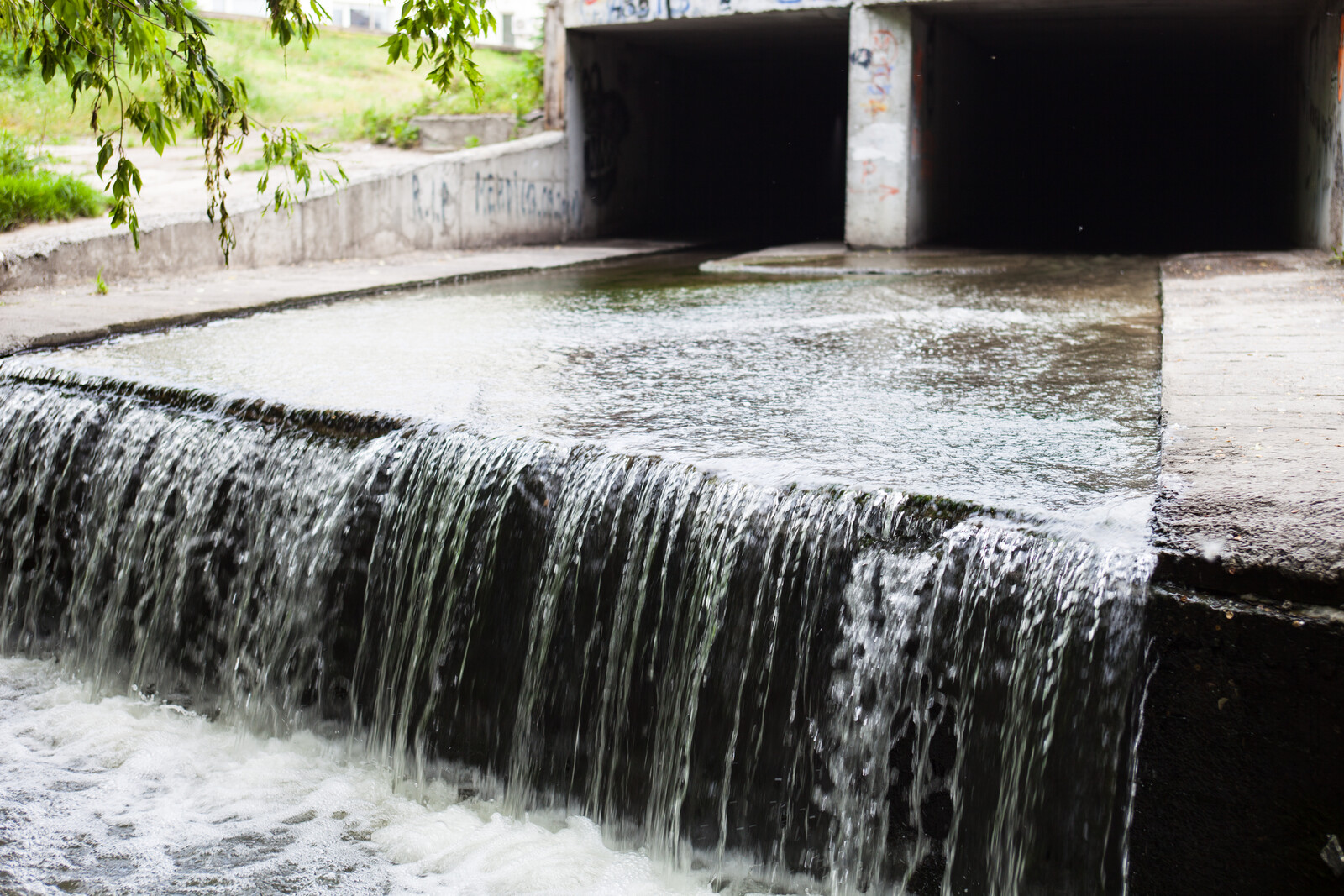
Stormwater funding can be challenging. Choosing the methods of funding can create choice overload. Too many options lead to inaction. As utility rate experts, HF&H Consultants has received an increasing number of questions focused on stormwater funding. To help you take action, we have prepared a technical memorandum to help you understand the challenges, provide some funding options, and see what others are doing throughout the Bay Area.
Our team is available to assist you with any questions you have. Please do not hesitate to contact Rick Simonson, Senior Vice President, at (925) 977-6957 to find out how we can help your jurisdiction navigate its stormwater funding needs.
We will be holding a virtual roundtable discussion or workshop in Quarter 2 of 2022. If you are interested in joining us, please send an email to Kim@hfh-consultants.com with subject line “Stormwater Workshop Registration.”
We extend our appreciation toward those who participated in our survey and research this past year.
Click here to download the Stormwater Funding Technical Memo.

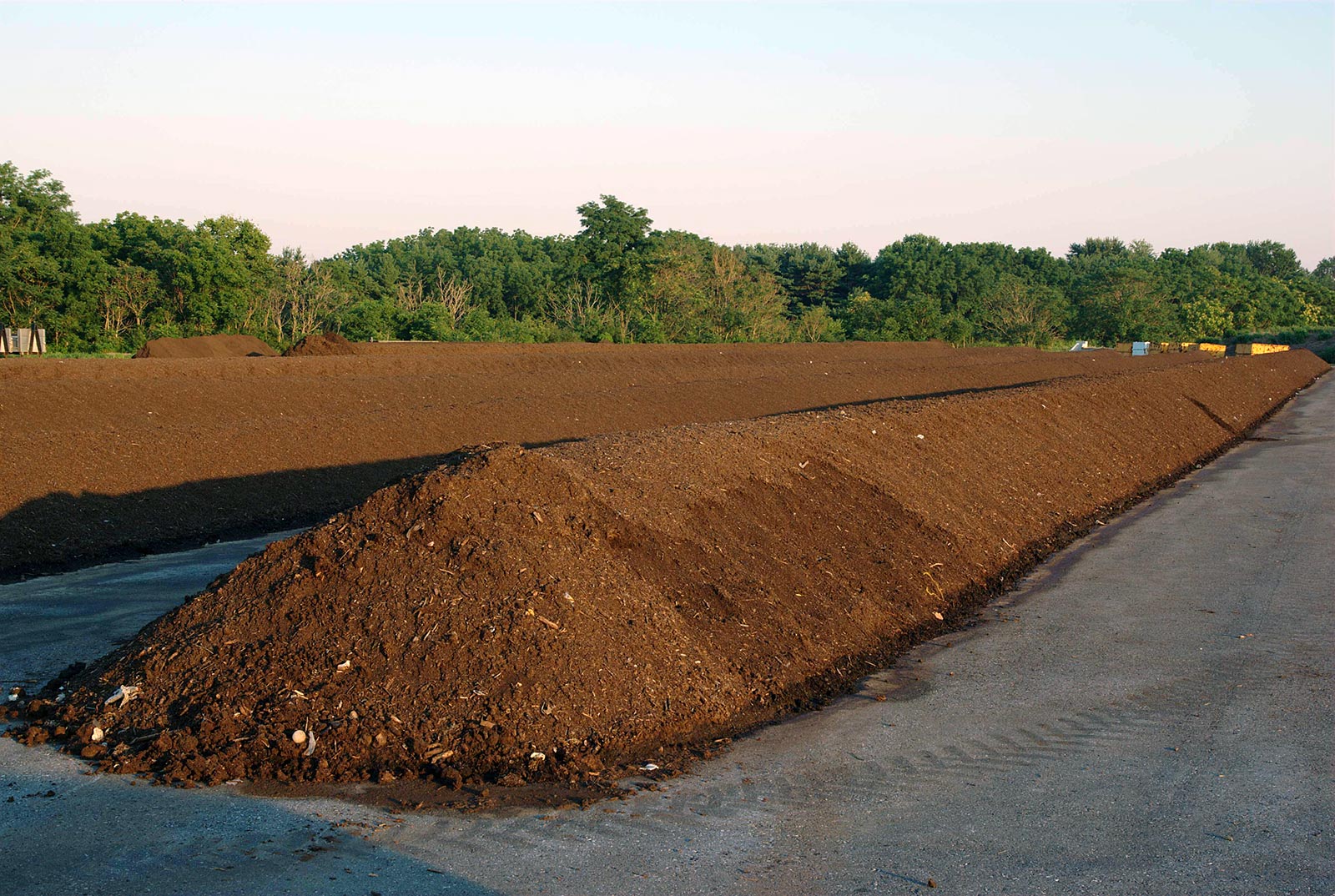
Southern California Waste Management Forum
Annual Business Meeting & Conference Webinar
Click here to register
June 9, 2021
Phil Mainolfi has over 13 years of financial, accounting and process automation experience, as well as seven years of diverse experience in the solid waste industry. While in the private sector, he spent several years managing solid waste contract compliance for 46 municipalities and government agencies; developing financial models, automating financial reporting processes, designing and developing management reporting tools, and managing external audits. Phil is a recognized expert in hauler/processor operations, zero waste planning, public outreach, and SB 1383 implementation.









